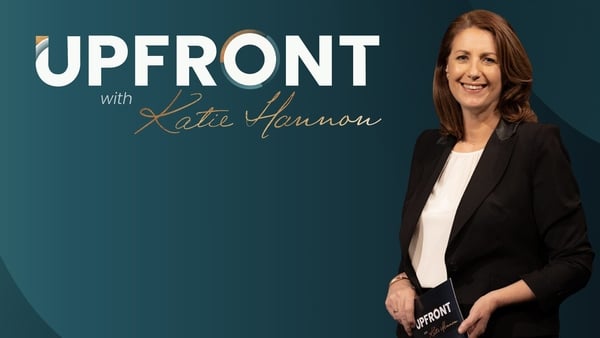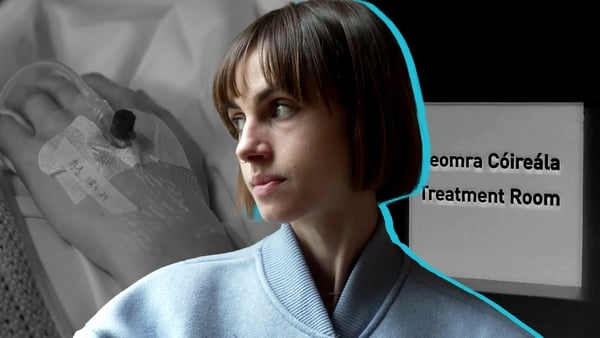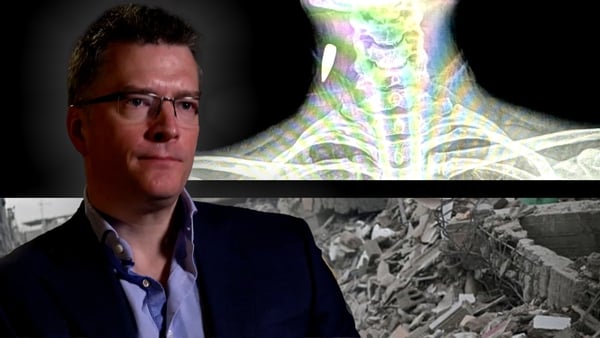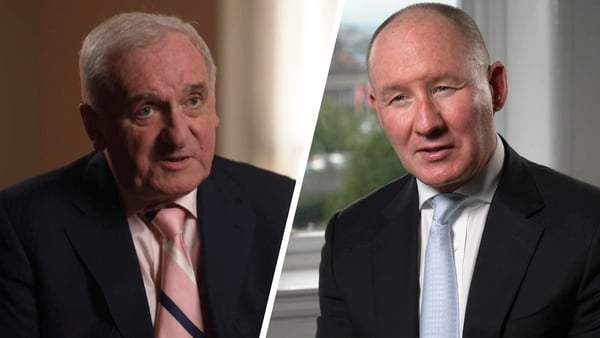As the crow flies, there is around 15,000km between Dublin and Perth in Western Australia. In many ways, the gap between the two cities stretches a lot further than geographical distance.
That's certainly the case for Pádraig Donovan, who qualified as a doctor last year and left the Irish health system behind when he emigrated to Perth two months ago.
He’s by no means alone. While Irish hospitals are facing into a winter spent battling the twin threats of Covid and flu, those working there are warning of a shortage of doctors available to treat the increased number of patients. At the same time, doctors are leaving the country in increasing numbers.
Junior doctors – or non-consultant hospital doctors (NCHDs) as they are formally known – have said for many years that the number of hours they are expected to work is unreasonable.
It was the first difference that Dr Donovan noticed when he began working in Perth.
He told Prime Time that he has not worked anything longer than a 37-hour week since arriving there.
It’s a stark contrast to his last job in Ireland, which saw him working between 65 and 80 hours a week. Though it’s a situation familiar to many junior doctors, it ultimately brought Dr Donovan to a breaking point.
"I ended up working, essentially, 19 calendar days in a row, which got me feeling particularly low. I was just really upset. It was just horrific," he said.

Dr Donovan told Prime Time that this was a result of him switching from one hospital to another, a regular occurrence for junior doctors. But nothing was done when he highlighted the issue.
"I was actually told that's just how medicine is, and, essentially, to get over it," he said.
At this point, Dr Donovan was feeling so tired and depressed that he fantasised about being run over by a car on his way to work. He took sick leave for stress, but said it took several months for him to be paid for the week-long absence.
Ultimately, he felt that he could no longer continue to fight against what he calls "nameless people and a nameless system". And so he decided to leave.
Many others did the same. This year, 442 Irish doctors applied for an Australian working visa. It’s a number that’s higher than at any point over the last 12 years, a number that’s been rising steadily since 2019.
For context, Ireland trains about 750 doctors each year. Almost 60% of that figure have left for Australia so far in 2022, which is just one of many countries where Irish doctors are in demand.
Working conditions are the most commonly cited cause for those leaving.
Junior doctors aren’t supposed to work more than 24 hours in a row, or 48 hours in a week. The expectation to regularly work beyond those limits prompted NCHDs to go on a one-day strike, nine years ago this month.
In June, 97% of NCHDs once again voted for industrial action, up to and including strike action.

The Irish Medical Organisation (IMO) said that the HSE routinely requires junior doctors to work "unsafe and illegal hours".
Talks are currently taking place between the IMO, the HSE and the Department of Health. The IMO said it will decide next week whether sufficient progress has been made to avert another strike.
There have been moves to address the situation, with Minister for Health Stephen Donnelly last month establishing a task force to examine working conditions for junior doctors.
But it’s not clear whether it will do enough to halt strike action or, indeed, stem the tide of doctors leaving our shores.
It could be pointed out that Irish doctors have always left the country, to seek better pay and conditions or to gain experience. Then there are other benefits, such as year-round sunshine, that a country like Australia has to offer.
As part of her Hospital Doctor and Retention Project, Dr Niamh Humphries has been tracking the trend of Irish doctors leaving the country for more than five years.
The project has so far involved more than 1,000 doctors in Ireland and 50 Irish doctors working in Australia.
Dr Humphries, a senior lecturer in the Royal College of Surgeons in Ireland, said that what we’re seeing at the moment is very different to anything that has come before.

In the past, she said, economic factors were the main driving force in doctor emigrating. But, more recently, the main cause has been poor working conditions. And those conditions have worsened since the onset of the Covid pandemic.
"What we are seeing is an intensification of what was already existent before Covid," Dr Humphries said.
She added that the patterns of emigration we’re seeing at the moment are unsustainable.
Dr John Cannon, the Vice President of the IMO, believes that what makes this different to the emigration of the past is that it will be more difficult to tempt these doctors home.
"We're seeing people that do one year of service in the Irish healthcare system and, after that one year, they're so burnt out, they're so disenfranchised, they feel so chewed up by the system, they're thinking, I can't go on after one year," Dr Cannon said.
"And they're going to Australia. They’re going there to set up for life and they’re not coming back."
Away from the long hours and the fatigue that comes with them, young Irish doctors also have to contend with a system that makes them move hospital every six months – they say that these moves frequently lead to their pay being disrupted.
Dr Rachel McNamara, who sits on the IMO’s NCHD committee, said even though the HSE is the entity paying the wages, the system treats junior doctors as if they have changed employers each time they move hospitals.
"You go back onto emergency tax and it could happen multiple times within a year," she said.
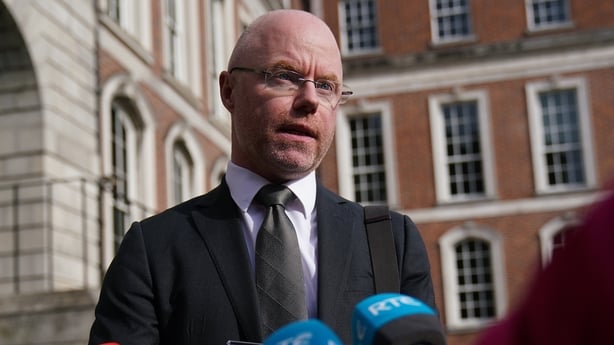
Dr Donovan said that he was on emergency tax for three or four months in a row, resulting in take-home pay of around €800 a month. This at a time when he was working 65 hours a week.
It’s a situation that Minister for Health Stephen Donnelly has acknowledged as being unacceptable. The minister told Prime Time that he had engaged with Revenue and instructed the HSE to end the practice on emergency tax in the coming months, stating that he believed this would happen in the pay run "around or just after Christmas".
Mr Donnelly also said that the conditions outlined to Prime Time by numerous junior doctors matched exactly what he had heard from his own discussions with NCHDs.
He added that the Department of Health was already acting, in part by allocating €1m to improve working conditions by providing doctors with places to lock their bicycles and "somewhere to put your wallet, somewhere to hang your coat, the ability to get food and water at night if you're doing an overnight shift".
Addressing the hours that junior doctors are routinely expected to work, the minister said that it was simply unacceptable. He acknowledged that a quarter of NCHDs currently work hours beyond those allowed under the European Working Time Directive.
Mr Donnelly also added that conditions in Australia may not always be more favourable.
He citing an Australian Medical Association study from September, which found that three in five junior doctors were concerned that they would make a clinical error due to fatigue.
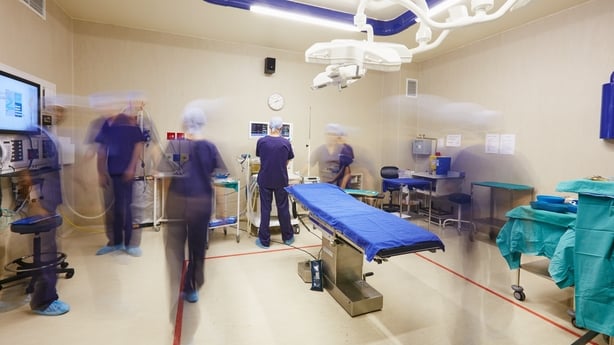
When asked whether junior doctors should believe that their working conditions will be improved as promised, the minister said that they should "treat all of this with a healthy degree of scepticism".
"They have been made promises before. What I can say is I've met them, I’ve listened very carefully to them," he said.
"We have acted already. So the barriers to foreign training have been removed, €1 million has already allocated, the emergency tax is coming to an end, the task force has been set up, college places have been increased, training places have been increased, but there's much more required."
Doctors like Pádraig Donovan, who have already left, will need a lot of convincing that things will change enough to make them want to come home.
He that he would probably never have left if he had been guaranteed to never work more than 48 hours a week. But now that he’s in Australia, it may already be too late.
"I don't know how I'd go back," he said.
"I don't know how I'd face back into the housing crisis and cost-of-living crisis and doctor crisis – and how I'd go back to that when I could just stay here and be happy."

